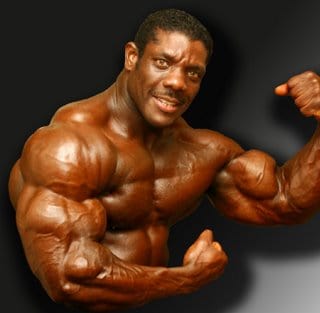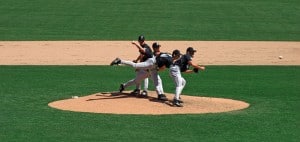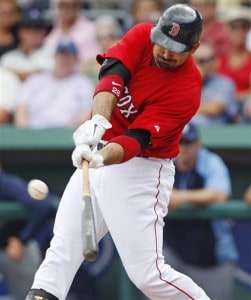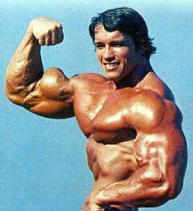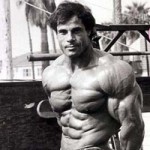Posts Tagged ‘athletes’
Thursday, March 8th, 2018
A human body is made up of different physical parts that come together to form a complex system. All these body parts will not be able to function if they are not facilitated by certain chemical bodies such as enzymes and hormones. These chemical bodies exist both in males and females and allow the body to perform various different functions. There are growth hormones, sexual hormones, and reproductive hormones among many others. The hormonal activity in a human body within itself is a very complicated one. It is important that the hormone level is maintained at a certain level in order for your body to be able to perform its functions normally.
(more…)
Tags: anabolic, anabolic steroids, athletes, bodybuilding, side effects, steroid side effects, steroids
Posted in Bodybuilding, Supplements | 1 Comment »
Thursday, August 4th, 2016
Getting to the Olympic podium isn’t easy – but these athletes will give you the inspiration you need to achieve your athletic or fitness goals.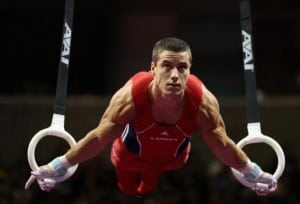
Athletic Edge Sports Medicine in Toronto created this interactive web page by pulling data from the Olympic website and the individual Wikipedia pages for these athletes. The infographic takes a look at the youngest and oldest ages of summer Olympic gold winners.
The infographic covers everything from the Olympic 100M and golf to fencing and beach volleyball. Another neat feature of this web page is it’s interactive set up: Clicking on an athlete will show you the year they competed in and their country. Origin countries and olympic dates across the world from Bulgaria in 1976 to Italy in 1912 to Canada in 1904 are covered.
Two athletes that stand out are Marjorie Gestring and George Seymour Lyon. Gestring is the youngest to win at age 13 in 1932 for the United States, her oldest counterpart being Chantelle Newbery who won at age 27 in 2004 for Australia. Lyon won a gold medal in golf at age 46 in 1904 for Canada, his youngest counterpart being Warren Kenneth Wood who won at age 17 in 1904 for the United States.
These athletes didn’t let their age define their athletic goals – and neither should you. Check out the infographic below for some inspiration:
(more…)
Tags: athlete, athletes, olympic, olympics, Sports
Posted in Sports | No Comments »
Tuesday, April 30th, 2013
What is Bruxism and Why Should You Care?
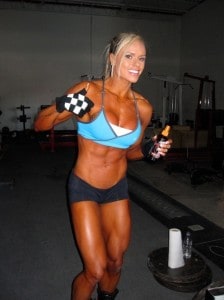
In case you didn’t know, bruxism, more commonly known as grinding your teeth, is a fairly common condition that affects nearly every person at some point in their life.
For many the condition is temporary and mild, presenting no real health threat. But whether you do it while you sleep or it occurs during waking hours, you may not realize that it’s happening until you start to notice headaches, pain in your jaw, or wear and tear to your chompers. And by then the situation has likely gotten a little more serious.
As a bodybuilder or athlete, you could be more prone to this issue than most. If you want to keep your smile full, healthy, and white, like the fitness chick to the right, take these tips into consideration sooner rather than later.
A Few Causes of Bruxism
Although many attribute the condition to high stress levels, which can certainly be a contributing factor, the truth is that bruxism is a habitual activity, even though you may do it subconsciously, like twirling your hair, tapping your foot, or jingling change in your pocket. And when you’re lifting you likely clench your teeth, which can definitely lead to the formation of bruxism.
Athletes using performance enhancers are also at a greater risk, especially if you use a strong cycle of steroids or human growth hormone (HGH). Feeling of aggression and stress are exaggerated when you are cycling, are are nighttime conditions such as sleep apnea and, as you may have guessed, bruxism.
(more…)
Tags: athletes, athletics, brusixm, dental, dentistry, fitness, health, healthy, mouth, teeth
Posted in Healthy Lifestyle, Injuries, Medical | 2 Comments »
Wednesday, February 13th, 2013
Enhance Sports Performance with Resistance Training
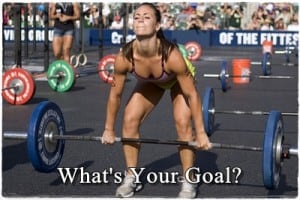
Most athletes do whatever exercises are most beneficial for their sport of choice. Often, the focus of a workout regimen is geared towards the demands of the sport in question.
For example, marathon runners train by running, while cyclists – you guessed it – train by riding their bikes. But whether you play soccer or basketball, you’re big on Parkour, or your idea of a good time includes a kayak and white-water rapids, you may find, at some point that your training sessions are not delivering the results that they used to. Or perhaps you’ve found that you can’t seem to get over a personal plateau with a pure cardio routine.
Whatever the case, you may eventually come to the realization that adding weight training to your efforts could be beneficial to your overall health and fitness, taking you to the next level with whatever form of athletics you prefer. And here are just a few benefits that should help convince you to take the leap and lift some weights.
(more…)
Tags: athletes, athletics, fitness, performance, Sports, Weight Training, weightlifting
Posted in Sports, Weight Training | No Comments »
Friday, August 26th, 2011
Today’s society is keener on converting young athletes into peak performers overnight by just winning competitions. The people behind these young athletes i.e. parents and coaches, fail to understand that there is much more than just winning.
Peak performance is not only about winning a competition or two. The athletes should be able to perform well for a long while in their field of interest.
The training program thus, should comprise of a comprehensive plan that combines various elements pertaining to the body, mind and spirit, so as to improve the performance of the athletes both on and off the court. What are the factors to consider while devising such a training program?
Here are some tips for young athletes to achieve peak performance:
(more…)
Tags: athletes, fitness, Kids, performance, Sports, teenagers, young
Posted in Fitness Tips, Kids, Sports, Weight Training | 1 Comment »
Tuesday, July 12th, 2011
Plyos, Olympic Lifts, and Dynamic Efforts are not the Only Ways to Increase Speed and Power
Strength coaches around the world prescribe plyometrics and Olympic lifts to increase force production – to build speed and power. Powerlifters around the world utilize dynamic effort lifts – box squats, speed deads, board presses – to increase their speed and power.
We can all learn A LOT from those methods, but there is one constituent of force development that the above methods don’t take into account. Consider reversal and/or starting strength, acceleration, and stretch reflex actions of the muscles that act as the antagonists to the primary sports movement.
(more…)
Tags: agonists, antagonists, athletes, concentric, eccentric, force, muscle, power, speed, Sports, strength, weightlifting
Posted in Martial Arts, Sports, Weight Training | 6 Comments »
Friday, July 8th, 2011
Should Athletes Train Individual Muscles or Only Sports Movements?
As a trainer, I have to know how to train people from all walks of life. I’ve seen bodybuilders, strength athletes, middle aged men, obese housewives, trained athletes, newbies, weekend warriors, and about 100 other types of people and athletes. No one routine can be designed for everyone.
Even in niches like baseball athletes, strongmen, and Olympic lifters, there is no one-size-fits-all training routine. You can’t take a baseball pitcher and train the pitching motion for 5 hours a day, 7 days a week. It just won’t work. So how do you train athletes that only need a small variety of movements to be successful at their sport?
The Myth
A long standing myth about training for sports, is that you should only train the common movements for your sport, so that you can get better at those movements. If you know nothing about physiology, kinesiology, or basic physics, then logically that makes sense.
However if you think about how the body really works, you will realize that the body will always find a way to perform any intended movement. Have you ever bench pressed and altered your shoulder, elbow, hip, knee, or foot position in order to eek out that last rep?
(more…)
Tags: athlete, athletes, bodybuilding, exercise, fitness, Sports, train, training, weak point, Weight Training, weightlifting, workout
Posted in Bodybuilding Myths | 4 Comments »
Wednesday, June 15th, 2011
Should Bodybuilders Train to Failure?
“No pain, no gain!”
You hit the gym like a maniac. You want every rep to burn. Every set has to be a max rep attempt. Maybe you even enlist a spotter to help you eek out an extra rep or two. Is training to failure or past failure a good practice for bodybuilders?
The Myth
“The only rep that counts, is the one you can’t finish.”
To grow as a bodybuilder you need to push every set to failure. That’s how Arnold and all the great 70’s bodybuilders trained, right?
Some of the following techniques, called “Weider Training Principles” are used to take each set past failure:
- forced reps
- forced negatives
- rest pause
- partial reps
- drop sets
This is how bodybuilders have trained for years and it’s how bodybuilders should train today. Is it right?
(more…)
Tags: athletes, body building, bodybuilding, exercise, failure, fitness, myths, train, training, Weight Training, weightlifting, workout
Posted in Bodybuilding Myths | 4 Comments »
Tuesday, August 18th, 2009
I get plenty of questions in various comments throughout the website, but I also get comments and questions via the Project Swole Contact Form.
Generally I address those questions through e-mail, but often I do not have the time to reply to each and every question personally.
The category, Your Health Questions is a more proactive approach to answering your questions so that everyone can benefit from the Q & A.
Jim wrote:
“I wanted to know about how much protein my 14 year old should be having.
He is playing football and weightlifting at school. (Freshman). He is 5’8 and 112 lbs.
He wants to add some weight and muscle but we heard that you should not give your teen protein because they will start to grow outward instead of height-wise.
What do you recommend?”
(more…)
Tags: athletes, high school, Sports, teenagers, Weight Training, weightlifting
Posted in Your Questions | 12 Comments »
Thursday, September 11th, 2008
Inexperienced athletes do dumb things. Most people look for the easiest way from point A to point B, and sometimes they become obsessed with trivial details. I did it; you did it… or maybe you still do it; and the newbie that jumps on the bench after you will do it too.
Hell, when I first started training, I was following a 6 day per week, 2 a day program, written by some professional bodybuilder. It took me a year to learn how to do barbell back squats and even longer to start deadlifting. I thought I knew what I was doing just like you do.
In order to take that first step towards knowing everything, we must first realize that we know nothing. This is what I want you to do before you read the rest of this article. Once you can admit that you know nothing about weightlifting, you can read these tips and apply them to what you have been doing, in order to start doing what you should be doing.
Once you have the proper train of thought, you may proceed…
(more…)
Tags: athletes, Conditioning, mistakes, Weight Training, weightlifting
Posted in Conditioning, Weight Training | 5 Comments »
